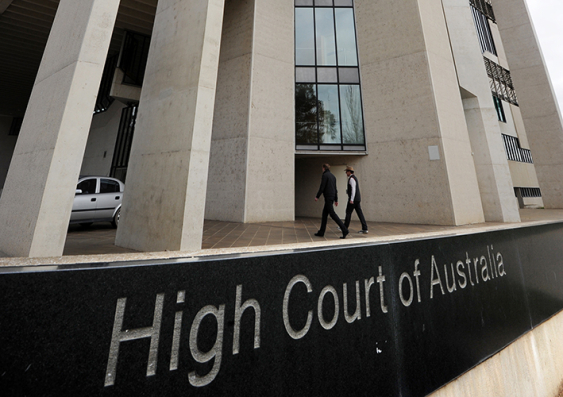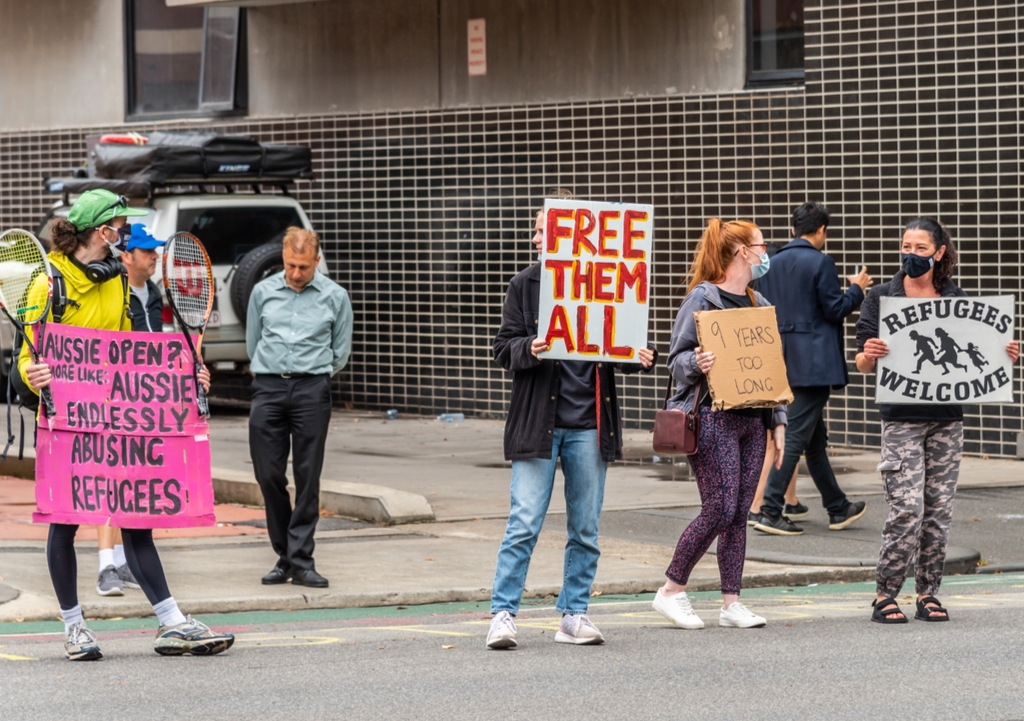The Albanese government wanted to avoid an inquiry into its migration amendment bill. The report, handed down yesterday by a senate committee that reviewed the bill, showed why.
The report lays bare the potentially devastating impacts of this hastily drafted bill. These impacts would go well beyond the cohort of former detainees who have featured so prominently in the news since the High Court’s NZYQ decision in November, which put an end to indefinite immigration detention.
The immediate impetus for the bill appears to be another High Court case, called ASF17. The judgement for this will be handed down on Friday. At stake in that case is whether the government must release people from detention where they cannot be removed from Australia, even if their own unwillingness to cooperate is a contributing factor.
So what did the senate inquiry find, and what does it mean for the future of the legislation?
What does the bill say?
The Labor government – caught flat-footed by NZYQ – was apparently taking precautions ahead of the ASF17 decision by introducing a bill to criminalise non-cooperation with removal efforts. But the bill takes a sledgehammer approach, going far beyond the small group that may be affected by the recent High Court challenges.
It potentially affects tens of thousands of people, most of whom have spent years living in the Australian community. Those who fail to comply with directions to cooperate in their removal would face a mandatory jail term of between one and five years. Where Australia’s flawed processes have failed to identify protection claims, people may be forced to choose between going to jail, or cooperating in their removal to a country where they may face persecution or other serious harm.
The bill also expands the minister’s powers to reverse findings that people are refugees or otherwise in need of protection. What’s more, it could see entire countries subject to travel bans. This would stop people being able to travel to Australia, denying them visas in an attempt to pressure those countries to accept forced returns.
The government’s haste sparked anger and concern – not just about the substance of the bill, but also about the process. Although the major parties passed it through the lower house, the Coalition joined the Greens and independents in the senate to hold an inquiry. They received hundreds of submissions, many yet unpublished, attesting to myriad concerns with the legislation. Of the public submissions, only the Department of Home Affairs supported the bill.
Community questions unanswered
Many community organisations and people with experience of displacement appeared before the senate committee, vividly showing the very personal impacts it would have. They voiced fear that the bill would separate families: husbands from wives, parents from children. They spoke of a sense of injustice and being unfairly targeted for punishment.
Their words are referenced throughout the committee’s report, but their voices seem to have gone unheard. The majority Labor report quotes their concerns across some 40 pages, interspersed with non-responses from home affairs officials – only to recommend the senate pass the bill unchanged.
There is no clear answer to Betia Shakiba, a refugee advocate from Iran, who said:
I was one of many in my community who gave evidence and wrote a submission about what the ramifications of this bill are not only for my family, but also for the broader refugee community. It is so disheartening to note that our concerns have not been fully considered by the committee.
Nor is there an answer to the concerns raised by many members of Australia’s migrant communities about the potentially devastating impacts of the proposed travel bans. Haatsari Marunda, from the Zimbabwe Australia Community Association, explained she had received calls asking:
If there is a wedding tomorrow, and Zimbabwe is a designated country, what happens? Are my parents going to come? Are my aunties and uncles going to come? What is going to happen to my family? Worse, if there is a funeral tomorrow, if we are a designated country, who is going to attend the funeral if the whole country is banned?
What happens now?
Labor could put the bill to a senate vote as soon as next week. The evidence brought to the committee will be further weighed against political calculations, with separate reports from the Coalition, independent Senator David Pocock and the Greens urging three different ways forward.
None is happy with the government’s approach. Even though the Coalition broadly supports the bill’s policy intent, it has “significant concerns about potential unintended consequences created by a rushed process and a persistent refusal by the government to materially engage with substantive concerns”. Labor and home affairs officials argue the bill would “close a loophole” when it comes to removing non-citizens. To get the votes in the senate, the government will have to use a much finer needle.
The Greens and Pocock recommend the bill be canned altogether, although Pocock offers some recommendations if the bill is to move forward, including calling for a new process for reassessing protection claims refused through the unfair fast-track process.
If the major parties join forces to pass the bill, which seems likely, the final version will depend on safeguards demanded by the Coalition, which made 17 recommendations addressing some of the concerns raised during the inquiry.
While those recommendations would temper some of the adverse impacts, the bill is fundamentally flawed. The deficiencies identified by community groups, legal experts and human rights and charity organisations cannot be rectified through amendments.
Even the Labor-dominated majority report “urges the Australian government to give further and fuller consideration to how this Bill might impact those who now call, or wish to call, Australia home”. Yet it goes on to recommend that the bill pass, as is. The only caution is that the minister consider community impacts when placing travel bans on citizens from particular countries.
The overall result rubs salt in the wounds of migrant and affected communities who engaged with in the inquiry in the hope their representatives would listen.![]()
Daniel Ghezelbash, Associate Professor and Deputy Director, Kaldor Centre for International Refugee Law, UNSW Law & Justice, UNSW Sydney
This article is republished from The Conversation under a Creative Commons license. Read the original article.







